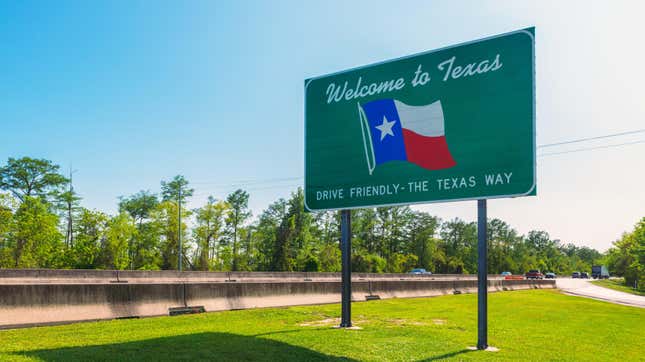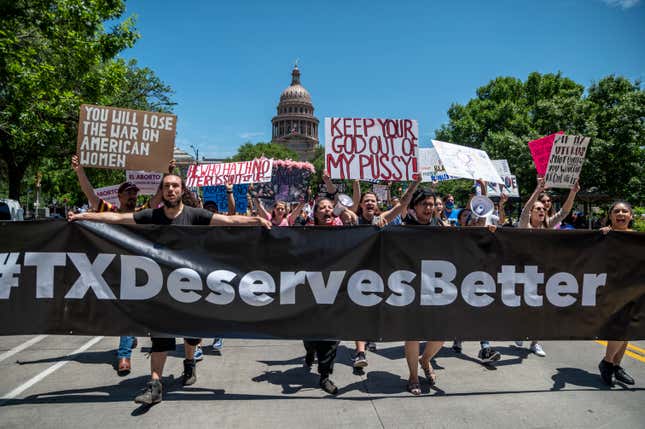Another County in Texas Has Banned Abortion-Related Travel
Lubbock County near New Mexico, with a population of 300,000, is the latest county to pass a law banning anyone from traveling on county roads for an abortion.
AbortionPolitics

Shortly after Roe v. Wade fell, abortion funds across Texas paused their operations out of fear of facing criminal charges or costly lawsuits for helping people get care. For a stretch of time, the Texas-based Buckle Bunnies Fund became the only fund to financially support abortion seekers in the state. Executive director Makayla Montoya Frazier told the Texas Standard earlier this year that during this period, the fund received nearly 70 assistance requests per day. The severe threats of Texas’ abortion laws had a chilling effect on advocacy groups across the state: “I was just like, fuck, that’s really scary,” Montoya Frazier said. Texas abortion advocates have long spoken out against the culture of fear that the state’s policy landscape has created to stop anyone from even helping someone get an abortion. “But that’s its intention: to be scary. They’re not going to enforce that.”
We’re now seeing that strategy infiltrate local-level politics.
On Monday, the all-male county commissioners court in Texas’ Lubbock County unanimously voted to pass a measure that makes it illegal for anyone to transport someone through the county, or pay for their travel, for the purpose of having an abortion. The vote comes after three other counties—Cochran, Mitchell, and Goliad—passed similar ordinances. (All the commissioners of these three counties are also men.) With a population of 300,000 compared to, say, Cochran’s 2,500, Lubbock is the largest jurisdiction to enact such a policy. The county also sits near the border with New Mexico, where 57% of Planned Parenthood patients come from Texas. It’s not unlikely that Texas abortion seekers traveling out-of-state for care might drive on roads that go through Lubbock.
Shortly after Lubbock passed this measure, the city council of Amarillo, Texas, on Tuesday deliberated over a similar measure to vote on at a future date. Reuters notes that Amarillo’s highways are also frequently traversed by abortion seekers heading to New Mexico.
-

-

-

-

-

-

-

-

-

-

-

-

-

-

-

-

-

-

-

-

-

-

-

-

-

-

-

-

-

-

-

-

-

-

-

-

-

-

-

-









































